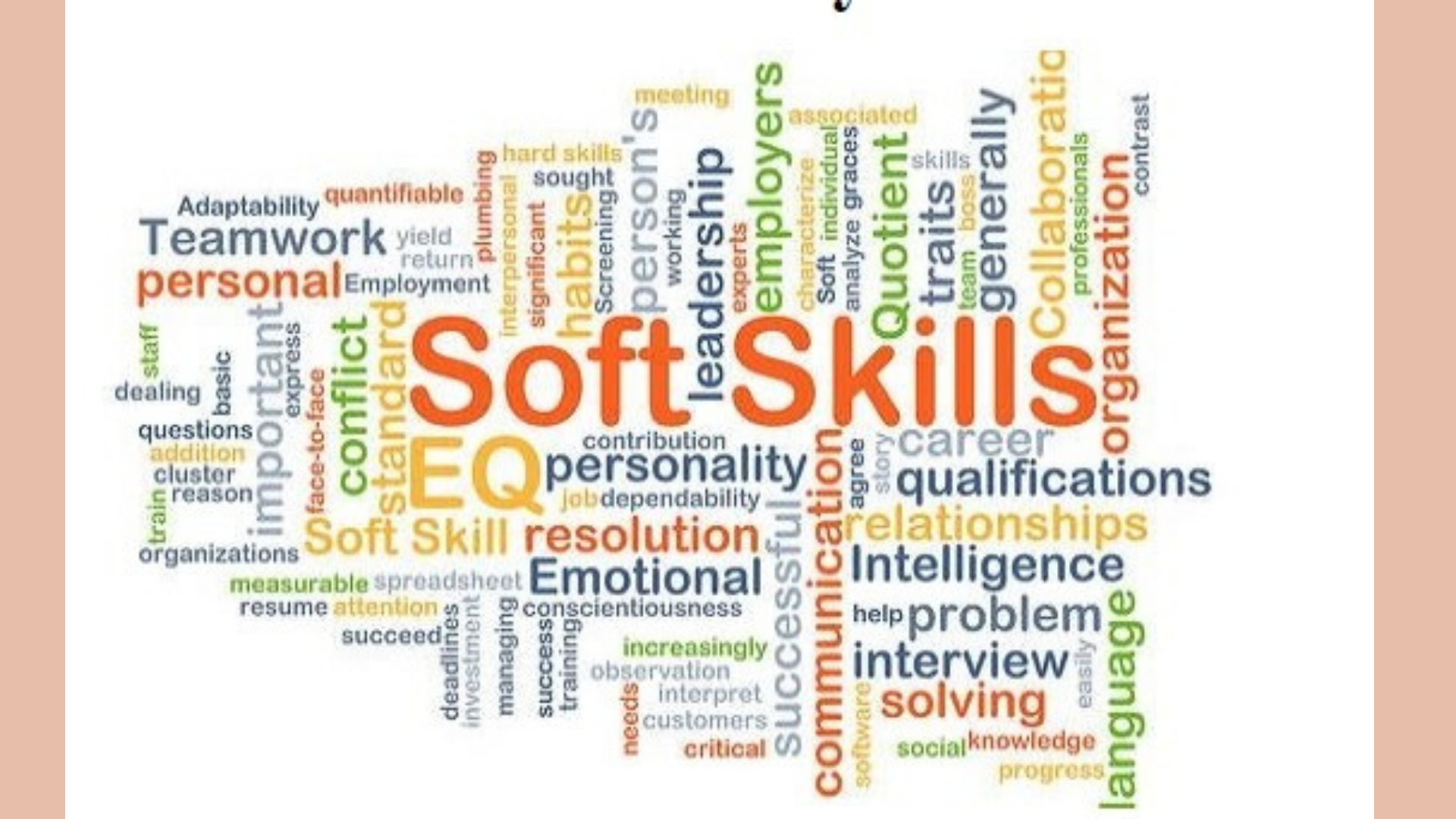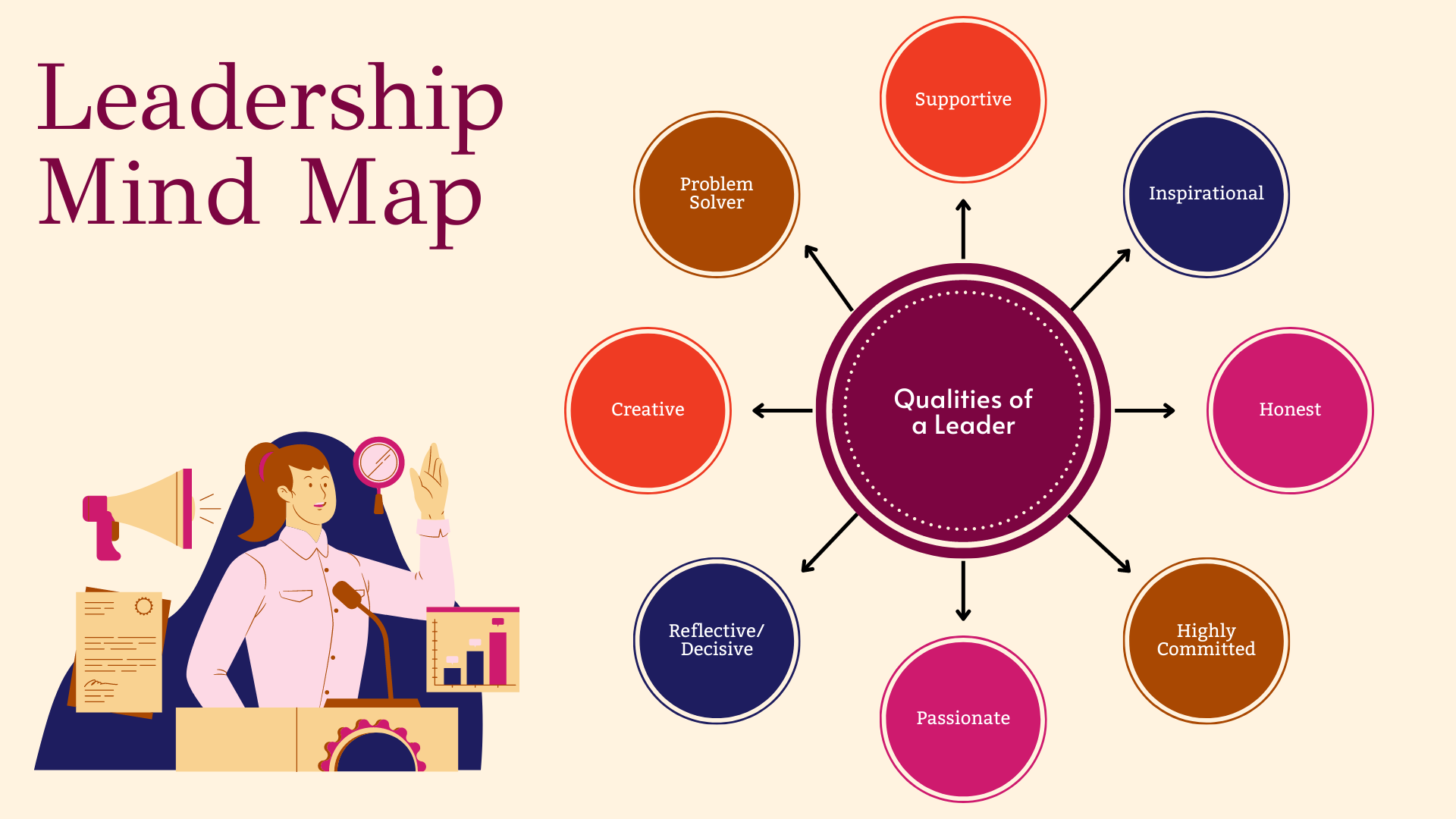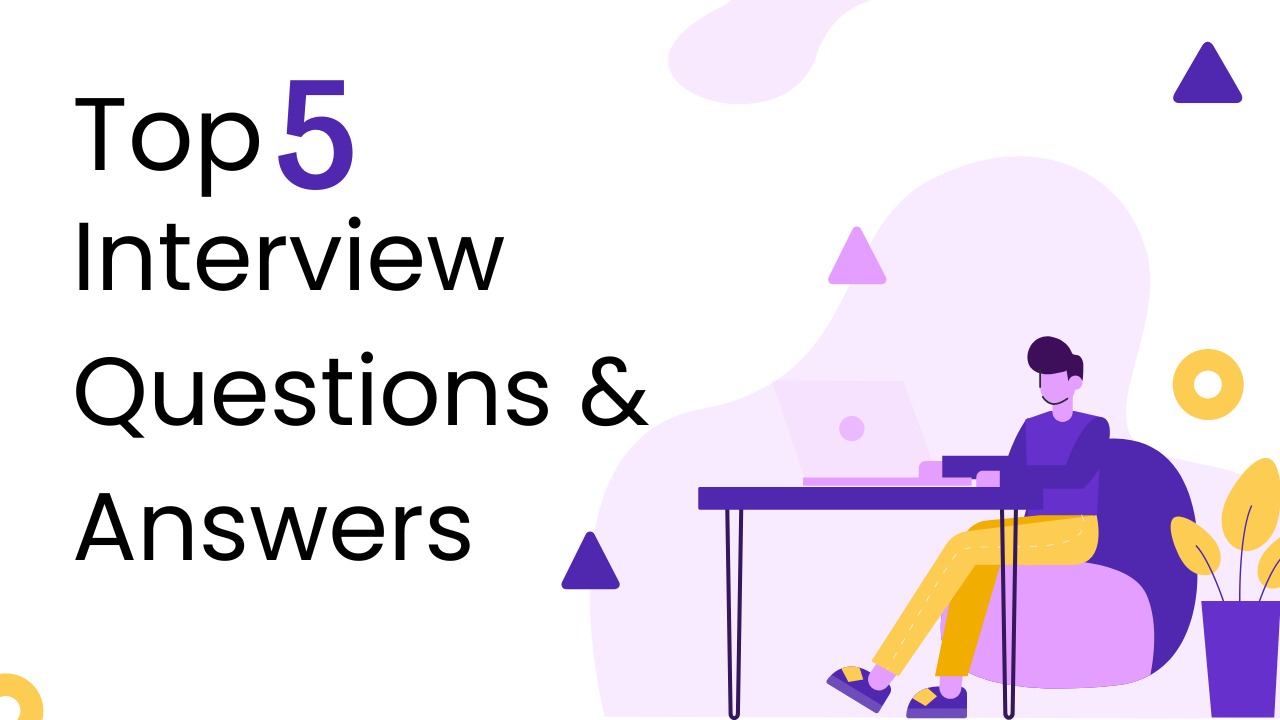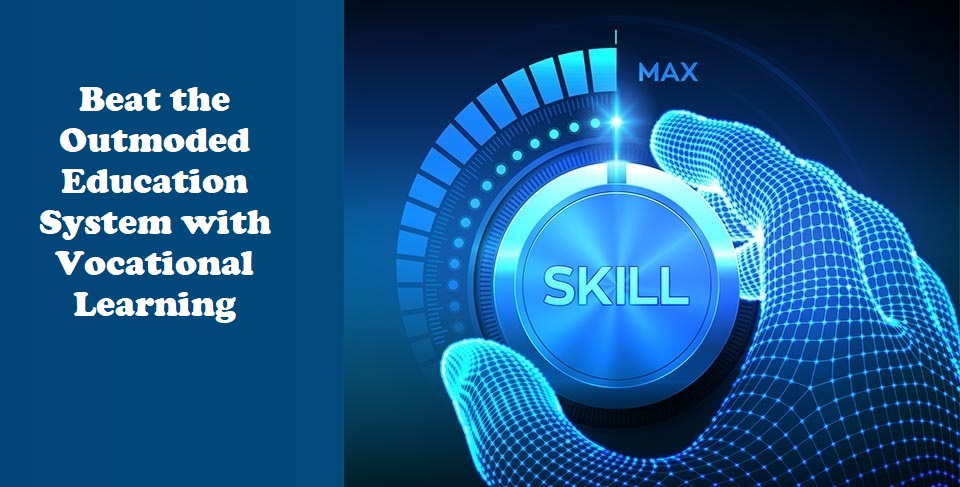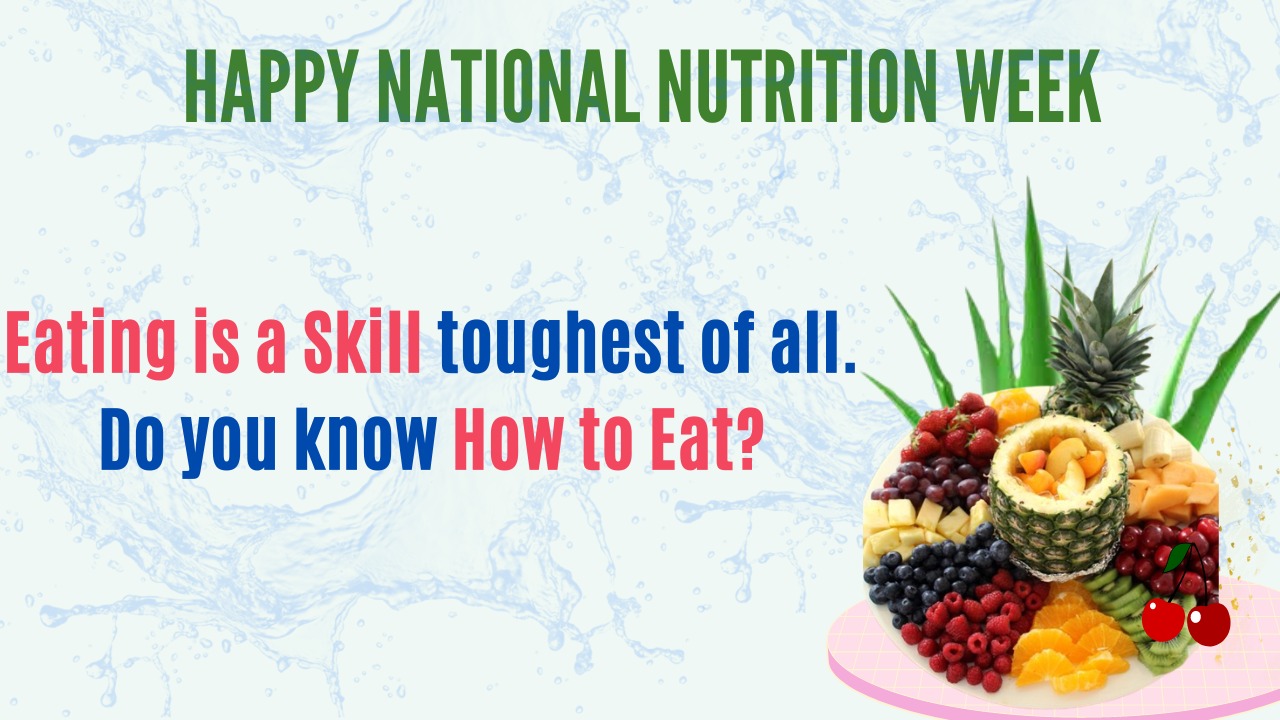The world is changing; it’s becoming more and more difficult to predict the needs and demands of employers and hiring officials. Especially after this global pandemic that shook the whole world to the core, a new era has dawned, the quintessential changes long ignored are becoming more volatile and dynamic.
Within the past two years, there has been swift reformation from work culture to dealing with unpredictable conditions. Now, the job sector has become more uncertain than ever and it would be strenuous if you are working and assuming that the constant skillset you have will ensure secure employment based on a stringent set of the same working principles and approach. This complex behavior of business and management systems requires fresh and innovative soft skills as well as up-to-date academic attainment plus practice that will help you transit swiftly within this perplexing structure. In short, it might seem like a hard task to show your true self yet to create an impression on the recruiter, you have to pass this test.
Therefore, Improving, Improvising and enhancing the soft skills that you have and learning the new ones is how you will adapt in this ever-changing transitional world.
So, the very first question arises: What are the 21st century soft skills?
The concept of 21st century soft skills such as critical thinking, problem-solving, collaboration and so on are not new to human culture. Realistically, these skills were present from the time when world exploration was at the boom, and our awareness and the degree to which changes in our economic system and the global advancement should have been implemented has not been taken care of. This means that collective and individual success depends on having such skills. These, if enlisted, are the set of abilities that will help in polishing an individual’s flair, enhance their potential and strengthen their determination. With the advancement in technology and digitization ruling this era; 21st century soft skills, if taken into consideration seriously, will not only affect one professional life positively but also engrave us with abilities that will create an everlasting impact on personal life as well.
These skills are of 3 types
- Learning skills: These skills are very important for an individual as it empowers them to face unpredictable scenarios, day-to-day advancements in technology and ever-changing modern work environments. It teaches them how to use their intellect to face any unseen situation, how to make adjustments or how to perceive the problem and use that opportunity for your growth and betterment of society.
These skills are all about using an individual’s understanding to modify and adjust oneself in the work environment. If you are upgrading yourself and able to thrive well, then only you will become an asset to society. The learning skills consist of 4c’s i.e., Critical thinking, Creativity, Communication and Collaboration.
- Critical thinking refers to the skill that allows an individual to think out of the box. The system is not as rigid as it used to be earlier. Nowadays, the different and a fresh approach of solving the problem in hand by an individual is celebrated, as this leads to so many innovations and technological advancements which ultimately benefits not only that individual but also the whole system. Critical thinking involves the analysis of data and making the decision accordingly. It is mainly composed of two modules or components.
- A set of information and belief that generates a processing skill.
- The habit, which is created based on your intellectual commitment, to use those skills to guide behavior.
The concept of critical thinking is rooted 2500 years ago but the very term came into use in the mid-late 20th century. It creates an awareness of one’s ongoing thoughts that imparts reasoning capability to provide us with reasoning capability towards assumptions, purpose and problems. Critical thinking varies depending upon the motivation behind it.
- Creativity is the only skill that can’t be taught…Okay, what I meant by this is, it is that skill that comes organically within you. It can be polished with proper guidance and direction so that one can exploit his or her talent wholly. Creativity is not only limited to the artistic or aesthetic field; it is deeply rooted in the science and technology arena as well. Creativity helps the individual to see any problem with a different outlook, even in situational crises, allowing him to adapt in accordance to it and find the solution that lies beyond without losing composure. The importance of creativity is so much so that in a report published by The World Economic Forum in 2016 stated that creativity had moved from a tenth place ranking in 2015 to the third most important work-related skill for 2020. Creativity is one definitive psychological factor that makes us human. Creativity is what eventually drives innovation and solves VUCA (volatile, unpredictable, complex and ambiguous) problems. Creativity greatly impacts how you perceive the problem and your response to it.
- “Communication is power. To those who have mastered this skill, its effective use can change their own experience of the world and the world’s experience of them”- Tony Robbins.
Communication skills are what most individuals lack. Inadequate and Non-effective communication skills have their effects on an individual and therefore the profession. The good thing is it isn’t hard to achieve excellence in communication skills. Several courses may help you master the right way of communicating in different environments and to project a good impression of yourself on others. Communication skills at the core are verbal and non-verbal both. There is not only one motive to use communication skills, the skill may also be used to instruct, motivate, inform and persuade. The written form of communication also greatly affects the world that’s why it becomes important to master it as well.
- Collaboration is a key skill by which one can master teamwork. Collaboration skills provide the proper ethics, coordination skill, and proper work language that is required for work in a team. Collaboration has become important especially in the 21st century as nowadays, individuals are growing up in such an environment where exposure to the outer world is very limited. Collaboration should not be limited to working together. The true essence of collaboration is hidden behind the learning to enhance individuals’ acquisition of content knowledge and other important cognitive skills, like critical thinking and problem-solving. Collaboration skills help in improving the professional relationship of the individual, manage the workload, help to achieve the goal faster as the work is divided within team members to work efficiently
- Literacy skills: In this 21st century these skills are not only limited to reading, writing, and speaking, they are its component too. However, the definition of literacy has been majorly referred to as the ability to use technology for gathering and communicating information. Technology and media have become the major source of information and data in this era, making it more crucial to acclimatize ourselves to them to fully master these skills. Literacy skills are of three types also known as the IMT skills (Information literacy, Media literacy and Technology literacy).
- To define information literacy the American Library Association’s (ALA) (1989) definition is the best suited. Citing the definition “To be information literate, a person must be able to recognize when information is needed and have the ability to locate, evaluate and use effectively the needed information”. Today, libraries are no longer the primary source of information, now any information can be acquired from an ample number of sources. The Internet has turned out to be the most effective and easily accessible source. The only problem is with the reliability of the source. Not everything that is on the internet is true hence comes the part where the users have to decide and evaluate the reliability of the source. Here, they have to rely on their critical thinking and awareness regarding information. The user also has to look at the social, ethical, legal, and economic ground around the information for its appropriate use.
- Media is an integral part of our life. This prominent source of information is not anymore shaping our culture, it is becoming our culture. Media literacy creates a pathway that ensures an appropriate education of media culture and recognizes that the media impact to create a fresh stance toward both uptaking and originating media which is a need of today’s world. We need to prepare our citizens to be effective risk managers, efficient organizers of information, wise consumers, responsible content producers and active participants. Media literacy helps the individual to understand the author’s motive or goal i.e. whether the author is trying to manipulate our choices or provide us with some crucial information. With the help of this literacy, we can arrive at correct and informed decisions before time. Also with this, an individual can identify the role of media in one’s culture and leading role in making assertive decisions as media heavily affect the way we dress to the way we perceive certain things. Media literacy guides the individual to decide and recognize whose point of view the media is showing and tries to process the information and create decisions and judgments based on it. Media literacy includes asking specific questions and backing up your opinions with examples. It is the way one can bridge the gap between learning and life.
- Technology literacy defines the capability of an individual to work independently and cooperate with others to use technical tools or technology to access, manage, integrate, evaluate, create, and communicate information responsibly, appropriately, and effectively. It can be seen as the merger between literacy and technology so much so that the purpose of better understanding regarding the technology gets fulfilled. Today, technology has become an intrinsic part of our life making it extremely important to learn the proper and judicial use of technology in our favor and that is what technology literacy is all about. To make full use of technology and identify, solve or even avoid some of these pitfalls, we need to better manage and cope up with technological changes. Unfortunately, our society is not yet ready, not even close to achieving this goal. And this difference is widening. Although our use of technology continues to increase, our skills in dealing with technical issues have not improved accordingly. Neither the country’s education system nor the political decision-making bodies recognize the importance of technology literacy. Technology literacy recognizes many forms of technology and understands that the boundaries between science and technology are often blurred. This will quickly lead people to realize that technology has penetrated modern society, from small things that everyone takes for granted, such as pencils and paper, to large-scale projects such as rocket launches and dam construction. We have to realize that technology is bringing huge changes in society, and this has been true throughout history. Many historical eras are characterized by their dominant technologies: the Stone Age, the Iron Age, the Bronze Age, the Industrial Age, and the Information Age. Technologically literate people are recognizing the role of technology in the changes taking place around them and accepting the reality that the future will be different from the present, mainly because of the technologies emerging now, from Internet-based activities to genetic engineering and cloning. We have to realize that society shapes technology just like technology shapes society. Changes affected by technology are not inevitable; they are the result of human choice, not the result of impersonal historical forces. The key figures of successful technological innovations are not only engineers and scientists, but also designers and marketing experts.
- Life skills: These group of skills are psychosocial competencies and interpersonal set of skills that help, guide and allow the individual to make an informed decision, solve problems, think critically and creatively, communicate effectively, build healthy relationships, empathize with others, and in a healthy and productive way and design and manage your own life. Life skills can be used to refine personal behavior or behavior towards others, as well as behaviors that change the environment productively. The need for life skills is extremely important especially in this era where the personality and behavioral approach highly affects any risen circumstances. Life skills help teens to move efficiently from childhood to adulthood by improving their social and emotional skills in a healthy way. It helps improve social skills and problem-solving skills, which in turn help youth to form their own identity. It also promotes good social norms that impact youth, college, and family health services. It guides us throughout various sections of life which are related to society, work as well as interpersonal level. Life skills are broadly classified into 5 categories also known as FLIPS (Flexibility, Leadership, Initiative, Productivity, Social skills).
- Flexibility- Flexibility here is discussed in terms of thinking capability which aims at the potential of the individual to adapt and flourish in new situations, change accordingly and shift strategies to attain the desired result and meet the challenges. The ability to adapt in different environments cerebrally provides the individual wider opportunities, greater roles and a broader quotient. It helps develop a dispositional attitude: being comfortable with a higher level of discomfort. Receiving criticism is a notable point to consider with respect to flexibility, it will help them to improve and teach you how to handle negativity. It is about training your mindset to progress, regardless of new unexpected obstacles that come in your way, or when the path itself is not clear. Flexibility not only boosts your confidence but also allows you to challenge yourself and reach one’s full potential.
- Leadership- A strong and effective leadership is such a unique skill that can guide us through the conflict’s condition whether at personal or at global level especially in this chaotic era where we all need firm and operative supervision. Leaders can be anyone given the condition that they have a clear idea of what they want to do. The strength to persist in the face of setbacks, even failures. They must know where they are going, and why.
The purpose of leadership is to create a healthy environment in which people can thrive, develop and offer groups mutual care and responsibility. Share responsibility and decide roles. The five core skills that come under leadership according to the “SLOAN model” are:
- Visioning– to make a plan or take action taking the future in mind and have a particular aim to work for.
- Analyzing– to speculate the current scenario with every point of view possible, scrutinizing the process.
- Relating– to create relationships and negotiate modifications amongst various stakeholders.
- Inventing– to create new ways for making people to work together, bringing both social and technical systems together to work codependently.
- Enabling– to make sure that there are sufficient tools and resources to meet the vision or goal that has been created.
An ordinary person can be an effective leader if he has certain qualities, technical knowledge, emotional intelligence with contingency and team leadership. These qualities can be taught from an early age as well. Apart from these qualities and technical knowledge one must achieve emotional intelligence, which is composed of self-awareness, self-regulation, motivations, empathy and social skills.
- Initiative- It’s quite common that this skill set will go unnoticed as people don’t find “initiative” that important, but in this era consider mastering this skill set too as our world is getting more goal-oriented and individual interest keeps changing with time. Keeping that point in one’s mind, try to take initiative and self-direct yourself towards the goal. Initiative is the capability to own the actions that affect the future of the one taking it and making the crucial decision that leads to attainment of that goal. This skill set can only be achieved through purposeful practice or deliberate involvement of the individual. The main purpose of taking initiative is to teach the individual how to work independently, how to manage goals and time, create and achieve goals by making tangible and intangible success criteria. Dividing success criteria will help you in deciding which course of action you should pursue first, help you rate your performance, how and when to use available resources. Knowing the potential of the individual helps to achieve both long-term and short-term goals simultaneously with effective management. Taking initiative measures would help you manage the workload efficiently and you will not feel the work or goal assigned to you as a burden. You can monitor your growth and prioritize your task which leads you to making self speculation and you can see where you need to work on. To be a self-directed learner you should take actions to master any skill till you become a pro at it. Never stop learning and evolving from your previous version. Not only learning from the experience in the past but also applying the knowledge in future i.e. what you have reasoned throughout the journey holds paramount importance. In conclusion, initiative is self-learning and self-discipline which will make you achieve your goals swiftly in a well-planned manner.
- Productivity- how you manage a project assigned to you? and what are the outcomes of your work? These all questions define how productive you are. It is your ability to work under different circumstances efficiently and give high-quality results. The 21st century is full of opportunities as well as distractions, one can spend the whole day on the phone either scrolling through the internet or can work from the phone as it becomes an important and easiest source of information, and here is when productivity becomes very important. It helps in maintaining the work efficiency in an appropriate amount of time. Productivity not only makes one proficient at handling workload and achieving assigned tasks easier, it also helps in the accomplishment of half-done jobs. Being systematic and doing your low-level work (your mundane chores) with a consistency directly refer to being productive. The art of doing the job assigned efficiently and with a creative perspective is what makes a person productive. Productivity creates a balance between our existing loads and new loads. It includes prioritizing the needs, adapting and moulding yourself according to the environment, planning by applying the knowledge instilled in yourself and skills you possess for decision making. This will lead to creation of a standard product. The identification and utilization of available opportunities, self-sufficiency with respect to learning even in unfavorable conditions, and finding motivation and commitment towards a goal are some salient features of a productive person. Productivity can only be attained with continuous practice.
Social skills- The 21st century is more people-oriented. They are the resource and the user as well. Social skills are a structural part of today’s world where building relationships and creating networks would only facilitate one in using this resource for their benefit. Having a good, healthy and budding personal and professional relationship can be related with having good social skills. Showcasing these interpersonal and intrapersonal skills in an efficient way could definitely lead to the achievement of your goals. We need social skills on a daily basis whether interacting with others or leading a project which involves team efforts. These skills are in many ways verbal, nonverbal, written and visual. Verbal skill comprises the language we speak. There are several factors that come under verbal skill like how you deliver your speech, your ability to hold a conversation, encourage essential discussions leading to a fruitful judgment. Strong verbal skills play an important role to unite people especially when the area of discussion is conflicting or controversial. “Action speaks louder than words” just like that way you can affect more people through your non-verbal skill. Non-verbal skill consists of the way you showcase yourself to others. These skills include our body language, eye contact, confidence and so on. Soft skills are important because they can help you communicate more effectively and efficiently and therefore build, maintain, and expand relationships with colleagues, clients, and new contacts. These skills are essential to maintain and improve, regardless of your position in the industry, or level of experience. The individual must have such social skills in the social perspective that allow him to be aware of the reactions of others and to react with understanding. Every individual needs to have a service orientation in which they actively seek ways to be compassionate to the people and needs of the organization.
How useful was this post?
Click on a star to rate it!
Average rating 5 / 5. Vote count: 1
No votes so far! Be the first to rate this post.

